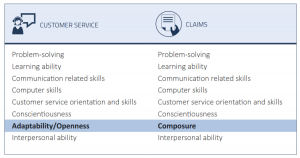As organizations continue to settle into working remotely due to the ongoing crisis, customer service is under strain to deal with the rising volume of inquiries. Understandably, customers are looking for information on how the current situation affects the products and services they rely on.
So how can self-service help companies reduce the burden on their agents and employees? To understand that, we had a conversation with Mr. Sagi Eliyahu, the CEO of KMS lighthouse. He is a thought leader in the knowledge management sector and has over 20 years of industry experience.
Hi Sagi, how are you doing? How is the remote work situation in Israel?
It’s going well so far, but it’s a bit awkward because we’re not used to this since we usually deploy everything at work. But to be fair, there are also advantages. You have more time with family. I only miss going for a walk or getting a coffee at a coffee place.
One of the ways that self-service helps customer service agents is by helping customers resolve their issues by themselves. Research shows that 76% of people prefer not talking to a support agent when first trying to solve an issue. What are your thoughts on this?
While organizations want to go digital and use self-service, the reality is that if you look out there, most self-service offerings are not good enough. It’s a dilemma — on one hand, people want to consume self-service, on the other hand, the self-service is not yet ready to be consumed properly, and this is why it’s a challenge that organizations are looking to overcome.
But the research and technology are there, it’s a matter of decision. And I think we are going to see a trend, similar to what we saw with Cloud. 10-15 years ago, everybody was talking about the cloud, but only a few enterprise companies were on the cloud. I think the same thing will happen with self-service. Everybody is talking about self-service, and shortly customer support will be purely self-service.
Companies during the crisis are looking to build exhaustive self-service portals for their customers. What do you think they should be focusing on, and do you think having an exhaustive self-service portal does indeed help customers?
First of all, self-service is the ability to enable your customers to get the information they need quickly and easily. Thi s is the main challenge that all organizations need to look at. Suppose you work with a specific bank, you normally would go to Google to find the information you need from the website of the bank. This is something organizations are looking at in order to give their customers a solution that will make it easy to consume the information quickly. So it should be easy, quick and should be done right, which means that each customer should get exactly what they need from self-service portals. This is the challenge that organizations are currently facing.
I think the current situation will push for the adoption of self-service big time. Some of our customers in the US are short on call center agents. If there’s a knowledge management technology like Lighthouse, then it’s easier for call centers to be able to provide good service. But in many cases, companies just don’t have enough agents, so then a self-service offering is mandatory to manage days with high call volume.
Take retailers, for example. This is a market I think is booming in terms of requests because people want necessities such as food but are cagey about buying certain products because of the uncertainty of the current situation. They usually call and ask questions such as ‘what time are you open?’ or ‘do you have toilet paper?’ before deciding to go to the store. This type of information is important to people and can be gotten easily using self-service. This is the direction companies are heading in.
From the agent side, how important is it to have an internal FAQ or knowledge base, and how does it help manage an agent’s workload?
In my opinion, knowledge management for agents is even more important than customer self-service. In the current crisis, the work style has changed to working from home or other remote places, but work has not stopped. And this is why an FAQ or employee experience platform such as Lighthouse, that enables you to ask a question and get the right information is critical. Agents and employees require a self-service portal that gives important information or procedures if you ask for it in an intuitive manner. Self-service applications like Lighthouse are helping customers maintain their daily routine, just as before, without any barriers.
I don’t think that after the current situation passes, you’ll see a call center with a few thousand people sitting like they used to. The environment will change. I’m not saying people will work from home, but you won’t be able to return as if nothing happened. People will be cautious, but the work environment and style of working will change. And to adapt, organizations need powerful technology for this forthcoming transformation.
Key Takeaways
#1 Self-service will become the norm in the next few years as more customers demand to have that option from companies.
#2 Self-service allows customers to get the information they need quickly and easily, but achieving that requires companies to get it right, by nailing down the best approach for their particular use case.
#3 In the current situation, self-service allows agents more time to focus on important customer calls, and internal FAQs help employees access useful information on processes they need help with.
Business & Finance Articles on Business 2 Community
(45)




